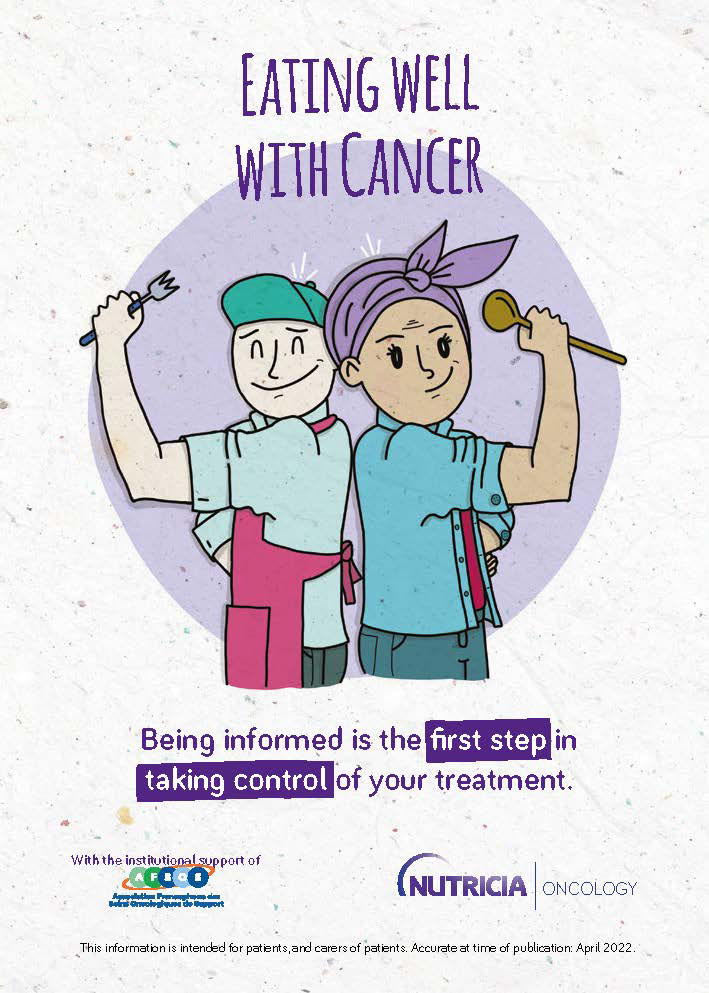Concerned about your nutrition?
What to do if you are concerned about your nutrition? For example, if you are struggling to eat or losing weight.
It’s important to raise any concerns that you have regarding nutrition. Speak with your doctor, nurse or dietitian if you notice any of the above symptoms or side effects or if you notice that you are losing weight, skipping meals or are unable to eat as much as you could before your diagnosis.
If you are struggling to eat and/or drink, have lost weight unintentionally or you have concerns about your diet and its role in your care, talk to your healthcare professional. As cancer care should be holistic and address all your individual needs, it’s important to remember that you don’t need to wait to be asked about your diet. It’s ok for you to start the conversation about eating and drinking.
What if I continue to lose weight? The role of Medical Nutrition
Some people living with cancer or undergoing treatment for cancer may find it difficult to get all of the nutrition they need from regular food and drinks alone. Your doctor, nurse or dietitian will be able to provide you with advice and tips to help you get more nutrients from the foods and drinks you consume. In the case that the above advice and changes are not enough to help you to meet your nutritional needs or maintain your weight, your doctor or dietitian may also recommend that you take an oral nutritional supplement, also known as a medical nutrition supplement.
Oral nutritional supplements (ONS)* are designed to help optimise your nutritional intake or help manage unintentional weight loss. ONS are drinks that contain nutrients such as protein, energy, vitamins and minerals and come in a variety of types and flavours to suit individual needs and preferences.
*ONS should be taken in addition to meals and snacks (not as a replacement). Always follow your doctor/nurse/dietitian’s advice on ONS.
The importance of good nutrition in cancer patients
How can Nutricia support you?
Nutricia have a range of products and resources which have been specially designed to meet the needs of people living with cancer. Speak to your healthcare professional about the best options for you.
Disclaimer: Nutricia products are classified as Foods for Special Medical Purposes and must only be used under medical supervision. .
If you have already been advised to take an ONS by your doctor or dietitian
If you have already been advised to take an ONS by your doctor or dietitian
You may already have been advised to take an oral nutritional supplement by your doctor or dietitian. Click here to read some of the commonly asked questions about oral nutritional supplements.

